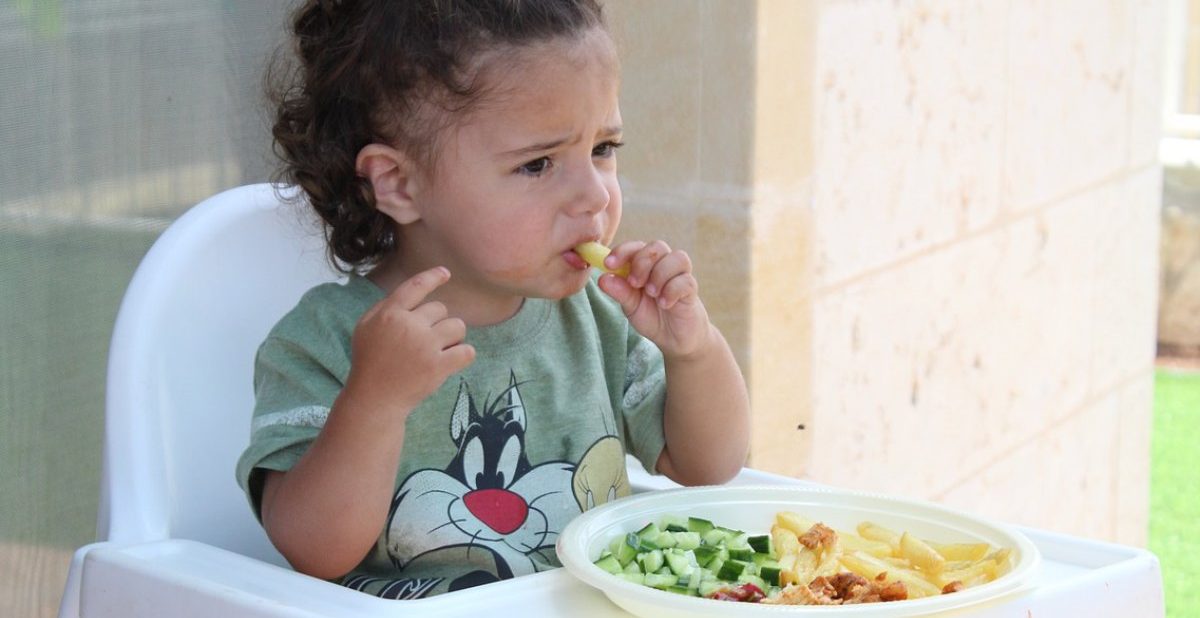
Picky eating or problem feeding? What is normal and when to get help
In many families with young children, mealtimes can be stressful. But how do
you know when your child has normal fussy eating, or whether their picky eating may be a problem requiring expert help?
During infancy, when babies start solids, they tend to eat a variety of different foods and progress through the textures from pureed to mashed to soft, and then onto regular family foods by 12 months of age. The ensuing toddler years are when families find the situation can change.
Toddlers and even pre-schoolers are renowned for their fussy eating, and may exhibit a range of behaviours such as rejecting familiar foods, refusing a range of foods, being apprehensive to try new foods, limiting the variety in their diet (vegetables are typically the most limited food group), and going through food fads. Young children may have a variable appetite, mealtimes can take 20-30 minutes, and behaviour during mealtimes can be disruptive, for example refusing to sit at the table, constantly leaving the table, or deliberately dropping food from their highchair.
This type of fussy eating is a normal part of development. The Division of Responsibility by Ellyn Satter, is used by health care professionals working with parents of fussy eaters, and provides recommendations to help combat these issues. As a parent, it is your job to decide what food is eaten, when it is eaten, and where it is eaten. This means you choose and prepare the food, provide regular meals and snacks, make eating times pleasant, model how to behave at meal times, limit food or drink (except water) between meals and snacks, and let your child grow in the body that is right for them.
It is your child’s job to decide if and how much they will eat of the meal or snack that is offered. Part of your role as a parent is to trust your child to eat the amount they need, learn to eat the foods the family eats, learn to behave well at meal times, and grow predictably in the way that is right for them.
DO:
- Set regular, predictable times for meals and snacks
- Eat together at the table as often as possible
- Serve food in the middle of the table and allow each person to serve themselves (assisting children where required depending on their level of ability)
- Try offering two courses, for example, entrée and main, or main and dessert, to provide two opportunities for your child to eat from the food selection
- Keep in mind it can take multiple exposures (14 or more!) before your child may accept a new food.
- – Limit meal times to 20-30 minutes
- – Acknowledge your child when they try new foods or sit properly at the table
- – Stay calm – remember your child’s appetite can vary from day to day, some days they will eat lots, some days they will eat a little.
AVOID:
- Skipping meals or snacks
- Eating on the go
- Filling up on food or milk between meals and snacks
- Distractions at meal times such as the TV
- Force feeding or bribing your child to eat or try new foods
- Negative comments about a food or your child’s eating behaviour
Signs that your child may have more significant problems with feeding that go beyond what is developmentally appropriate include consistently calling them a picky eater whenever you see your GP or child health nurse, or if they restrict their range or variety of foods to less than 20 different foods, cry and meltdown at the sight of a new food, refuse entire food groups or foods of a certain texture, almost always eat different foods to the rest of the family and often do not eat with the family. Mealtimes usually take longer than 30 minutes despite offering their preferred foods, your child may throw or spit out food in protest to eating, and their growth falters as a result of their poor appetite and picky eating. Another aspect of problem feeding can arise if your child has become overweight or obese due to an increased appetite.
Feeding difficulties can be common in children who have experienced a disruption to either the mealtime environment and/or feeding development. These children may have a history of prematurity, difficulty breastfeeding, reflux, constipation, tube feeding, choking or gagging, severe food allergies or developmental delays.
If you are experiencing any of these problem feeding challenges with your child, you can seek expert advice from a health care professional, such as an Accredited Practicing Dietitian, who can link you in with other therapists as required.
Kirsten is a mum to three children and has experienced fussy eating first hand! She has been a dietitian for 15 years, and having specialised in paediatrics, she has worked with families to help solve problem feeding issues.






